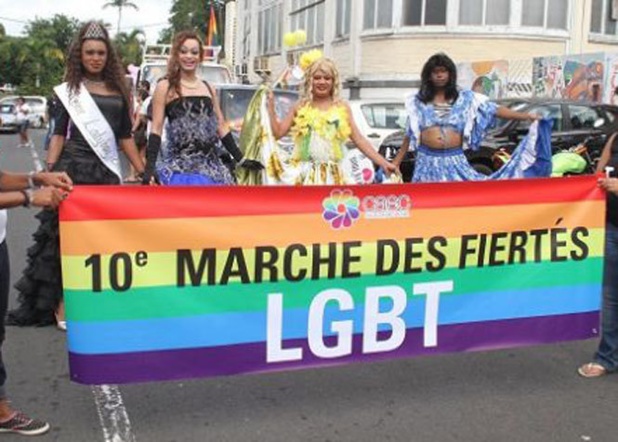2022 turned out to be a major year for the advancement of LGBT rights with huge developments in every corner of the world. To celebrate this progress and highlight some of the challenges ahead for the global LGBT community, 76crimes is presenting this six-part series looking at the wins and losses queer people achieved in 2022.
We’ve come to the end of the series!
Here, we’re going to discuss the progress LGBT people made in some key international organizations, summarize some of the trends around the world in 2022, and look ahead to developments we should watch for in 2023.

This article originally appeared on 76crimes Contributing Editor Rob Salerno’s personal blog.
Earlier in this series – Part 1: North America | Part 2: Latin America and Caribbean | Part 3: Africa and Oceania | Part 4: Asia | Part 5: Europe
International Organizations
United Nations
In July, the United Nations Human Rights Council voted 23-17-7 to renew the mandate of the Independent Expert on Sexual Orientation and Gender Identity for an additional three years. The Independent Expert position was created in 2016, and must be renewed every three years. The vote is always controversial, as you can imagine, given the large number of UN members whose governments are hostile to LGBT rights.
The UN also provided retroactive pension benefits for same-sex spouses of its staffers this year.
In 2022, Denmark and Honduras were admitted to the UN LGBTI Core Group as a pair. The UN LGBTI Core Group is a regular meeting of countries that are committed to promoting rights for LGBTI people internationally. New members in the group are vetted to ensure that they actually uphold (or are trying to uphold) the values the group shares, and new members can only join in pairs – one from the “Global North” and one from the “Global South.”

PURPLE states are Core Group Members
PINK states are represented in the group through the European Union
RED Non-member of the UN
There are several other “Global North” countries that we can imagine would like to join – primarily EU members and their neighbors, but they would need to find a “South” country to join with. There are some potential members among this group, depending on if their governments actually want to draw attention to developments on LGBT rights in their countries: India, Singapore, Thailand, Vietnam, Fiji, Belize, Panama, Namibia, Seychelles, Mauritius, and any of the Caribbean states that decriminalized sodomy this year or are expected to do so next year.
The UN Committee for the Elimination of Discrimination Against Women ruled in a case against Sri Lanka that the country’s ban on lesbian sex is illegal discrimination against the CEDAW Convention. The UN Human Rights Committee had already ruled that sodomy laws violate the International Covenant on Civil and Political Rights (ICCOR) way back in 1994. The CEDAW decision is particularly important because CEDAW has been ratified by far more countries than the ICCPR. CEDAW has between ratified by 189 states – every UN member except for the Iran, United States, Sudan, Somalia, Tonga, and Palau. That includes 15 states that criminalize sodomy but have not ratified the ICCPR (Brunei, Comoros, Kiribati, Malaysia, Myanmar, Oman, Saint Lucia, Saudi Arabia, Solomon Islands, South Sudan, Tonga, Tuvalu, UAE, Cook Islands and Niue). Although the ruling doesn’t have an immediate impact on member states, it’s another arrow in the quiver that can be used in domestic legal challenges to sodomy laws.
Commonwealth of Nations
Within the Commonwealth of Nations (sometimes erroneously called the British Commonwealth), the moves of four countries to decriminalize gay sex (Antigua & Barbuda, St. Kitts & Nevis, Barbados, and Singapore) and the addition of two Francophone African member states (Gabon and Togo) shifted the balance of countries where gay sex is legal vs illegal to 24-32 (not counting Cook Islands or Niue, which are not full members). If the four remaining Caribbean states with sodomy law challenges pending decriminalize it in 2023, that will bring the ratio to 28-28, tying these states for the first time. But because there are also proposals pending to decriminalize sodomy in Namibia and Sri Lanka, as well as a case before the Supreme Court of Mauritius, next year could be the first year that states where gay sex is legal outnumber the criminalizing states in the Commonwealth.

BLUE: Same-sex marriage legal
PURPLE: Same-sex civil unions legal
GREEN: Sodomy legal, no relationship recognition
RED: Sodomy illegal
Lighter shades denote territories of member states
There are also long-standing proposals to add certain members, including Suriname, South Sudan, Burundi, Zimbabwe, and possibly Cook Islands, which is seeking UN membership, but no new members are likely to be added before the next Heads of Government meeting in Samoa in 2024.
Along with sodomy laws, another legacy of the British Empire is the death penalty in the criminal codes of many former colonies. In 2022, two Commonwealth members ended capital punishment: Zambia and Papua New Guinea. The two former French colonies that joined also do not have the death penalty. Malawi’s courts reinstated the death penalty in law, however a moratorium on its use is in place. On this issue, the balance is currently 32 member states have the death penalty (10 with a moratorium in place) to 24 without capital punishment. Ghana and Sri Lanka are considering ending the death penalty.

BLUE: No capital punishment in law
YELLOW: Capital punishment in law, but a formal moratorium on its use is in place
RED: Capital punishment in law and in practice
Countries in lighter colors are territories of members states
Organization of American States
The OAS emerged as a major locus of LGBT advocacy with twin rulings from the Interamerican Court in 2018 that found that the Interamerican Convention on Human Rights protects the right to same-sex marriage and legal gender change in a case from Costa Rica. Nothing quite as earth-shattering as that happened this year, but the Interamerican Commission did applaud the rulings decriminalizing sodomy in St. Kitts & Nevis and Antigua & Barbuda this year. It seems the Court has never yet ruled on the legality of sodomy laws under the convention — most of the members that have sodomy laws still on the books have not accepted the jurisdiction of the court anyway. The Commission has, however, recommended that Jamaica repeal its sodomy laws, and has also taken on a case from Jamaica seeking equal marriage rights. You’d think this would be open and shut given the 2018 ruling, and yet.
European Union
The European Union has long been an advocate for LGBT rights, both in and out of the Union. The EU has been trying for years to push for at least recognition of legal same-sex marriages and parenthood across the Union, for the very obvious reason that if a family stops being a family when they move from Germany to Poland, that’s a real impediment to free movement, which is supposed to be one of the pillars of the EU. The European Court of Justice has actually ruled this way since 2018, but in practical terms, not all states are actually carrying out the ruling (hello, Romania). The European Commission is trying to push a firm law on this, but it appears that Poland, and possibly other Eastern European countries, will veto it.

BLUE: EU member states
YELLOW: EU membership candidates negotiating
PALE YELLOW: EU candidate with frozen negotiations
ORANGE: EU applicants
GREEN: Council of Europe members/territories not applying to the EU
The EU accepted three new candidate countries (Ukraine, Moldova, and Bosnia-Herzegovina), began negotiations with two more (Albania and North Macedonia), and has taken applications from two others (Kosovo and Georgia). We’re already seeing these states begin to make progress on LGBT rights in an attempt to bring themselves into alignment with the EU. Ukraine, for example, joined the Istanbul Convention on Domestic Violence, passed a law banning hate speech in broadcasting, and has begun talking about a civil union law. The Istanbul Convention is notable in that it includes a provision that the convention applies without discrimination based on sexual orientation or gender identity, something that has become a lightning rod for conservatives in the holdout states who are seeking to block its ratification.
The EU also deepened its integration with existing members. Denmark dropped its defense policy opt-out (which was always silly, given it’s a tiny NATO member), while Croatia adopted the euro and joined the Schengen area on Jan 1, 2023. Bulgaria is set to join the euro in 2024, and both it and Romania may join Schengen later in 2023.

GREEN: Convention members
PURPLE: Former members
YELLOW: Convention signatories that have not ratified
RED: Council of Europe member that has not signed the treaty
GREY: Non-members (note: Kosovo, not pictured here, is not a member of the Council of Europe)
Council of Europe/European Court of Human Rights
Distinct from the European Union is the Council of Europe, a body that’s meant to promote peace and human rights across the continent. In addition to the Istanbul Convention, the Council of Europe is responsible for the European Convention on Human Rights and the European Court of Human Rights. And in 2022, some notable changes happened among its membership.
As discussed in the section on Europe, the Court found in 2015’s Oliari and Others v. Italy decision that the Convention does requires states to recognize same-sex civil unions, but several other decisions through 2016 confirmed that the Convention does not require recognition of same-sex marriage. But could that change?
With Russia being booted out of the Council of Europe and denouncing the Convention, the single largest state opposing same-sex marriage is no longer part of the Council. Moreover, with Slovenia, Switzerland, and Andorra legalizing same-sex marriage this year, the balance has shifted to 19 states out of 46 that endorse equal marriage. We may also see up to three more members legalize same-sex marriage in 2023, bringing it to just under a majority. Could this sway judges if a future case is brought to the court?
The Fight for Equal Marriage
Same-sex marriage took a giant leap forward in 2022, with it becoming legal in four countries: Chile, Switzerland, Slovenia, and Cuba, with legalization to come into effect in a fifth, Andorra, in early 2023. Also, Mexico‘s last seven states passed equal marriage laws, making it legal nationwide, drawing to a close a process that began in 2009. We also lost equal marriage in the UK territories of Bermuda and Cayman Islands, but got marriage recognition in American Samoa.
Civil unions are becoming less popular or acceptable as a half-step, but Latvia’s court has created a sort of civil union and several Japanese jurisdictions have started to create partnership registries.
This brings the total number of equal marriage states to 34, exactly half the current number of states that currently criminalize sodomy.
Looking ahead, there are a number of states that could legalize same-sex marriage in 2023. Liechtenstein’s Parliament seems to really want to pass a bill and is waiting on its government to draft one. Thailand could also pass a bill, but it seems like time is running out for it to happen before the next election.
India’s Supreme Court should rule on a same-sex marriage case next year too. We should also get a final resolution on the appeals of the same-sex marriage ruling from Aruba and Curacao, which could extend to Sint Maarten. There’s a court case pending from the UK Virgin Islands, as well as a referendum being proposed to block it. And we are also waiting on court cases from Panama and Namibia, though we have no idea when those decisions will come.

DARK BLUE: Same-sex marriage is legal
RED: Countries where courts or parliament have legalized same-sex marriage, but it’s not yet in effect.
BLUE: Civil unions are legal
PURPLE: Limited recognition of foreign same-sex marriages (ie, immigration purposes)
YELLOW: States where a same-sex marriage bill has a likely parliamentary majority in favor of passage
ORANGE: States with active same-sex marriage cases before domestic courts
CYAN: States bound by the ECHR ruling requiring the establishment of same-sex civil unions
GREEN: Countries bound by the IACHR ruling requiring same-sex marriage recognition
Czechia has a bill before Parliament that might get new urgency after Presidential elections this month. And if Greece’s opposition wins the next election, it has promised same-sex marriage, which could inspire Cyprus to pass it too.
Meanwhile, Lithuania has a civil union bill pending, and Ukraine has also promised one.
Decriminalizing Sodomy
In 2022, five states ended their laws criminalizing sodomy: Antigua & Barbuda, Saint Kitts & Nevis, Barbados, Singapore, and South Korea (military code only). Indonesia introduced a new law criminalizing extramarital sex, but it’s not clear if it applies to gay sex, and the country was also counted as a criminalizing state, because gay sex was already illegal in its autonomous Aceh province.
This brings the total number of states that criminalize LGBT people down to 68.

RED states criminalize sodomy
ORANGE sodomy is currently only criminalized in one part of the country
YELLOW states have a sodomy law that is under a current court challenge
BLUE states have a sodomy law, and a legislative proposal to repeal it
Looking ahead, we’re very likely to see several states decriminalize sodomy in 2023. Court challenges to sodomy laws are expected to net rulings in Dominica, Grenada, St. Lucia, and St. Vincent and the Grenadines, and we might even see a ruling come out of Mauritius. The parliament of Cook Islands is expected to pass a new Crimes Bill that decriminalizes sodomy in March, which it has been debating since 2017. A bill is also before the Sri Lanka parliament, and the government has said it doesn’t oppose it. Namibia’s government has also talked about decriminalizing sodomy but has not put forward a bill to do so.
If you’re looking at the trajectories of these numbers, it sure seems like we are heading toward a world where there are more countries that allow legal same-sex marriage than criminalize sodomy. If all of these countries we’re looking at in 2023 go our way, the ratio of equal marriage countries to criminalized sodomy countries will shift from 34:68 to 42:60. To reverse that balance, we’d need a total of 18 further countries to decriminalize sodomy or legalize same-sex marriage.
It’s not hard to imagine where we get those. Jamaica, Guyana, and Malaysia could all see successful decriminalization campaigns in the near term, and there has been a movement to help Pacific island states update their colonial criminal codes, which are a further seven possible states.
On the marriage front, we have to believe that equal marriage is going to become the norm across the EU by the end of the decade, which would put another ten states in play, as well as the other two microstates Monaco and San Marino, plus the nine candidate countries (Ukraine, Moldova, Georgia, Bosnia, Serbia, Albania, North Macedonia, Montenegro, and Kosovo). And same-sex marriage is also getting a big push from activists across Latin America, where Venezuela, Honduras, and Peru are probably the likeliest next states. That’s a total of 34 countries – and we’d only need to win in about half of them to flip the ratio.
Equal Marriage vs Sodomy Law States by Population
Another way to look at these numbers is by population. The 34 equal marriage countries have a combined population of around 1.34 billion. The 68 sodomy criminalizing countries have a combined population of around 2.08 billion (including all 275 million people who live in Indonesia, even though it’s only illegal in Aceh province, population 5.3 million). If India legalizes same-sex marriage next year, that alone will double the global equal marriage state population to around 2.7 billion, vastly outnumbering those who live in criminalizing states.
Another 9 million people live in one of three states that gives some recognition to foreign same-sex marriages (Israel, American Samoa, and Sint Maarten). Additionally, a further 120 million live in one of the 12 states bound by the IACHR to introduce same-sex marriage (Suriname, Barbados, Peru, Guatemala, Haiti, Dominican Republic, Honduras, Paraguay, El Salvador, Nicaragua, Panama, and Bolivia).
On top of that, 235 million live in a state where some form of same-sex civil union is available (including 12 million in Bolivia, also counted above). Another 234 million live in Council of Europe states obligated by the Oliari decision to introduce same-sex civil unions.
Banning Conversion Therapy
Conversion therapy banned in 2022: Canada, France, Greece, New Zealand, Paraguay, Vietnam, Israel, India, and the Mexican states Jalisco, Baja California, Hidalgo, Puebla, Sonora, and Nuevo Leon

DARK BLUE: Conversion therapy banned in criminal law
BLUE: Medical professionals barred from performing conversion therapy under administrative penalty
YELLOW: Conversion therapy ban in criminal law proposed
CYAN: Conversion therapy banned in some sub-national jurisdictions; nationwide ban proposed
Banning conversion therapy has become a new major thrust of LGBT activism. I’m not wholly convinced that this is as pervasive a problem as some activists seem to believe, but it is undeniable that horrible, fraudulent pseudoscientific practices exist that prey upon vulnerable queer people and their families.
Bans on conversion therapy take different forms around the world. Some places limit their bans to therapies performed by licensed medical professionals, while others extend their bans to all persons purporting to be able to change someone’s sexual orientation or gender identity. Some only ban offering services for minors, while others prohibit the practice on all people. In some states, the practice is explicitly criminalized, with sanctions ranging from fines to jail time. In others, it can be a mere administrative infraction enforced by the government, with sanctions that include fines and deregistering of organizations and their charitable statuses. And in others, the practice is regulated solely by professional associations, under threat of license revocations.
Gay Blood Donation Bans
Bans ended in 2022: Austria, Canada, Cyprus, France, Greece, Ireland, Liechtenstein, Lithuania, Malta, Slovenia
During the height of the AIDS epidemic, many countries instituted bans on blood donations from gay men and other men who have sex with men, and sometimes their female partners. LGBT activists have long called for these bans to be revised to orientation-neural, behavior-based deferral policies. For example, some call for anyone who is celibate or monogamous to be allowed to donate, while those who have had recent new sexual partners are deferred. More and more countries are moving to this sort of model.

RED: Men who have ever had sex with men banned from donating blood
YELLOW: Men who have sex with men may donate blood only after a period of abstinence
GREEN: Blood donation is screened on a behavior-based system that does not discriminate between gay or straight sex
GREY: Data unavailable
Summary
These were the major highlights in 2022.
Decriminalized sodomy: Antigua & Barbuda, Saint Kitts & Nevis, Barbados, Singapore, South Korea (military), US state Idaho (codification)
Same-sex marriage passed: Mexico (the last seven states), Slovenia, Andorra, Cuba
Same-sex marriage came into effect: Chile, Switzerland
Recognition of foreign marriage: American Samoa
Same-sex marriage re-banned: Bermuda, Cayman Islands
Registered partnership: Latvia, numerous Japanese prefectures and municipalities
Same-sex couple adoption and parenting: Faroe Islands, Slovenia, Andorra, Cuba, Liechtenstein, Croatia, Chile, Switzerland, and the Mexican states Quintana Roo and Baja California Sur
Conversion therapy banned: Canada, France, Greece, New Zealand, Paraguay, Vietnam, Israel, India, and the Mexican states Jalisco, Baja California, Hidalgo, Puebla, Sonora, and Nuevo Leon
Anti-discrimination laws: Antigua & Barbuda, Spain, and the US states Nevada, Michigan, and Pennsylvania
Gays allowed in the military: Kazakhstan, South Korea
Legal gender change: Suriname, Lithuania, El Salvador, Venezuela, Andorra, Switzerland, Slovakia, Lithuania, and the Mexican states Sinaloa and Zacatecas
End of gay blood ban: Canada, Ireland, Austria, Liechtenstein, USA, France, Greece, Cyprus, Slovenia, Malta, Lithuania
Looking ahead to 2023….
Likely to decriminalize sodomy, in declining order of probability: Saint Lucia, Saint Vincent & the Grenadines, Dominica, Grenada, Cook Islands, Mauritius, Namibia, Sri Lanka. Plus the US states Massachusetts, Maryland, Michigan, and Minnesota are likely to strike their defunct laws from their books.
Likely to pass same-sex marriage, in declining order of probability: Aruba, Curacao, Sint Maarten, Liechtenstein, India, UK Virgin Islands, Thailand, Bolivia, Czechia, Panama, Namibia, Greece, Japan
Likely to pass civil unions: Ukraine, Lithuania, more Japanese prefectures, UK Virgin Islands, other UK territories. Possibly also Latvia, Thailand, Serbia, Barbados, Bosnia-Herzegovina, Kosovo
Likely to ban conversion therapy: Mexico, Spain, Ireland, Netherlands, Belgium, Colombia, Norway, Austria, Iceland, Sweden, Finland, UK, the Australian states of Western Australia and Tasmania, and the US states of Minnesota and Michigan
Likely to end their gay blood donation ban: Iceland, Switzerland, USA
And that’s it for my annual wrap-up of global same-sex marriage and LGBT rights progress! Thank you for reading!










